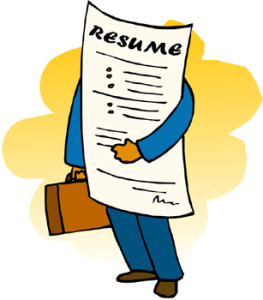The Art of Resume Writing: Less is More
There is no one right way to write a resume, but there are endless wrong ways to approach the task. One under addressed components of bad resumes is the idea of job seekers including too much information.
The great thing about having real work experience (other than establishing your budding career) is letting your resume reflect your professional experience. Once you add your first real job or two you have the beautiful freedom of removing that part time smoothie stand gig that you did when you were 16.
A well written resume is the crux of your entry into the job market- it is your singular most important tool to get in front of potential employers to dazzle them with your skillset and personality. As a recruiting agency we see thousands of resumes a month. We’ve come to be able to identify what buzz words actually indicate, tricks that people try to play (note: by listing only the years that you were with a company an employer will immediately think that you’re trying to disguise something), and what kind of tasks can be translated well to other positions.
Once you spend time artfully summarizing the duties of your positions and make them relevant to new positions that you’re applying for- it can be hard to recognize when they’re insignificant and when people simply won’t care to see them. Unless you need to fill space- no employer will care about every organization and society meeting that you attended while you were in college. Scholarships aren’t as impressive when you’re 8 years out of college. A recent study released by The Ladders reveals that recruiters and hiring managers spend an average of 6 seconds reviewing your resume.
Not only will they never see the second page of your resume- you’re sacrificing your formatting. A visually appealing resume will get more traction than huge blocks of texts with information that will never be reviewed.
The most important elements of a resume are:
- Your personal information– make this clear, correct, and easy to read.
- The titles of your positions. If you can- make these easy to understand and transferrable “Receptionist” is more universally recognized than “Director of First Impressions”.
- Location & Dates – This helps your reader establish a timeline of your work history to make sense of your story.
- Relevant experience – If a job description lists a specific skill or software experience- make that easy to find on your resume- if a hiring manager has to dig for something, it won’t be found.


